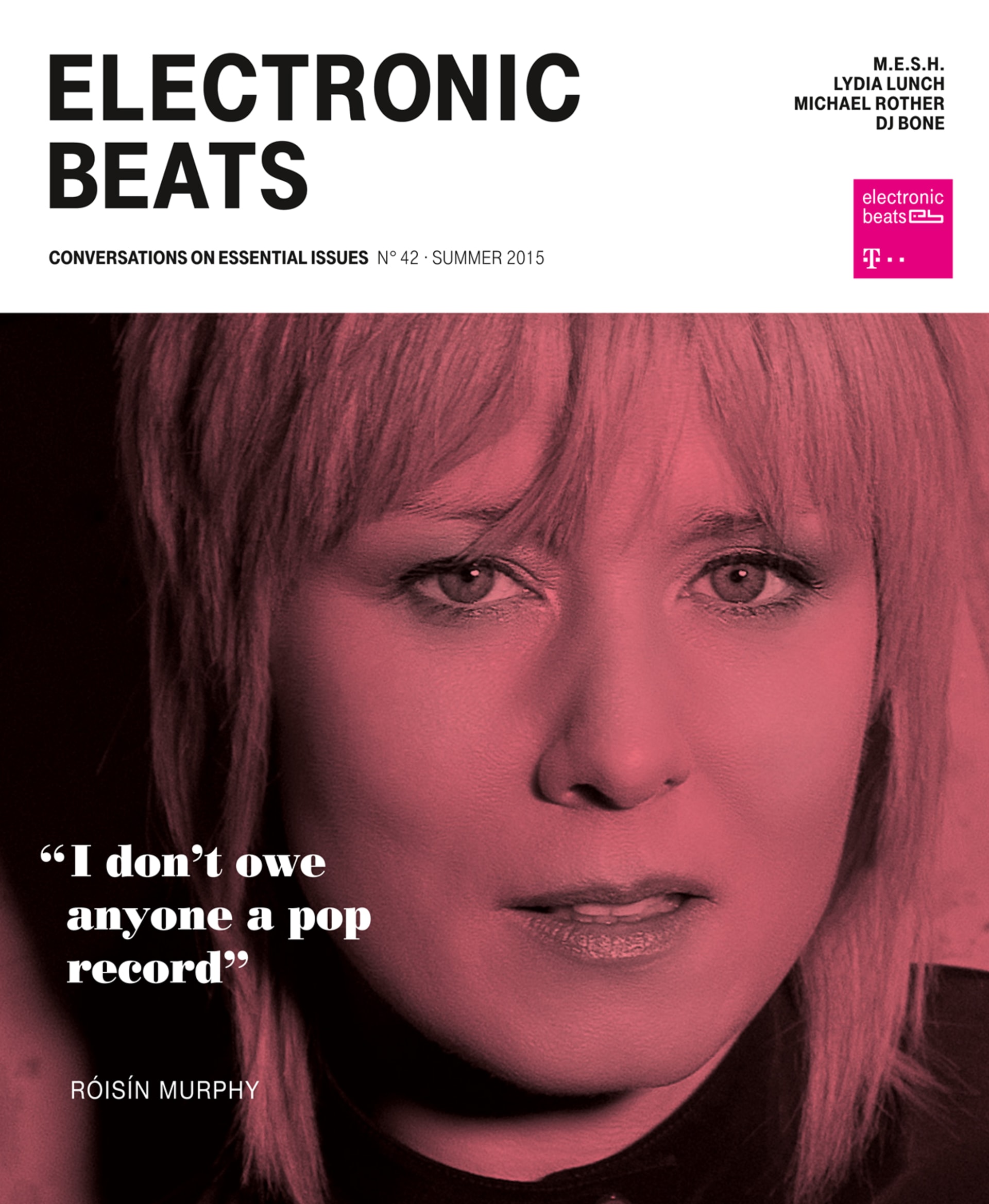
EB Magazine’s New Issue Tackles Tinnitus, Ghe20g0th1k & More
Since this magazine’s shift in focus towards the voices of the artists themselves, we have attempted to broaden the scope of what’s important to thinking about electronic music. What’s relevant to the artists from their perspectives—in monologues, interviews and conversations—is relevant to us, which is why looking beyond the conventional framework of dance music towards literature, film, art and philosophy has become central to Electronic Beats. In our cover story on Róisín Murphy, our lengthy interview with novelist Richard Price, our tinnitus special and elsewhere, we ask: How does framing information change its value? What’s a frame? Is it the thing that tells you where art ends and walls begin? Is it the conceptual packaging that simplifies complex things? Avant-garde producer and guest previewer M.E.S.H. offers his perspective.
A.J. Samuels: Knowing sufferers of tinnitus and having struggled with it myself in the past, it recently occurred to me how strange it was that so few magazines and websites on electronic music address the issue. Which is why we’ve decided to bring together in conversation experimental musician Frank Rothkamm and therapeutic tinnitus app developer Jörg Land, both of who have developed two new, extremely different approaches for therapy. Have you dealt with tinnitus at all in the past?
M.E.S.H.: Yes, I started noticing I had mild tinnitus in my left ear after coming home from a six-hour DJ set in Switzerland. This club had the booth monitor right by my head and the monitor control dial on the mixer was broken. I didn’t realize I was developing it for a long time because whenever I would notice the tone in a quiet room, I assumed it was just some electronic device in the immediate environment creating high frequency sounds. I find it interesting reading the ways people try to quantify the volume and frequency of tinnitus symptoms that seem to be psychological. It made sense to me that certain treatments that seem very subjective or imprecise could have actual real results. Frank Rothkamm’s project makes intuitive sense to me—a mix of research and experimentation on his own symptoms, filtered through his artistic practice. I can imagine that listening to his Wiener Process box set in full would attune the brain to perceive slight changes in tone at a finer granularity. Maybe the sound of the tinnitus just becomes a tone among many, and psychologically you become less irritated by it. The perceived volume decreases.
AS: In our Recommendations section, cybernetics theorist Oswald Wiener discusses his experiences making music together with Fluxus artist Dieter Roth, which often centered on tension-filled explorations and musical “failures”. An important goal was to break with conventional musical frameworks. How do you approach the possibility of failure in what you do?
M: I was interested to read about how Oswald Wiener felt he had some kind of balancing effect on Roth, as well as Wiener’s description of the tension between pure abstraction and the listener’s desire for coherence. Roth’s extreme level of output seems intimidating without experiencing the context of the time he worked in. I think in the conditions we make music today, it’s more necessary to have a fear of adding extraneous signals into the environment. It’s often the case that working quickly and unselfconsciously leads to unconscious copying and falling into clichés. Perhaps because we’re sitting now on the archive of all recorded music. Even working improvisationally can lead to quotations and copied gestures. As listener expectations become more normalized it becomes harder for artists to build a convincing language of their own. Personally, I like to create specific environments to work in, get things down quickly without editing, let it sit, listen, find connections between decisions I’ve made and build on those connections. It’s best if I can work instinctively and build up these tendencies into a sensibility. That way I can take the unexpected, the failure, and turn it into a semi-coherent system.
AS: What about the club music framework? In our Bass Kultur feature, Venus X speculates about the future of her party GHE20G0TH1K, which has much stylistic overlap with the Berlin-based Janus collective, to which you belong.
M: For Janus it’s been really important to have resident DJs to set the tone and draw connections between the guest acts and develop something new. As Venus says, I think it’s important for people to feel like they have a stake in their culture and be the ones that get to introduce it to the rest of the world. GHE20G0TH1K was really influential because it was so unfiltered, had a diverse audience, and turned into a platform for new sounds that didn’t have a home. There are a lot of pretensions about the club being a liberatory space but most aren’t. GHE20G0TH1K is an exception.
This article originally appeared in the Summer 2015 issue of Electronic Beats Magazine, which is out now. You can order new or back issues or subscribe by visiting the Electronic Beats webshop, and check out past issues online here.
Published June 21, 2015.
